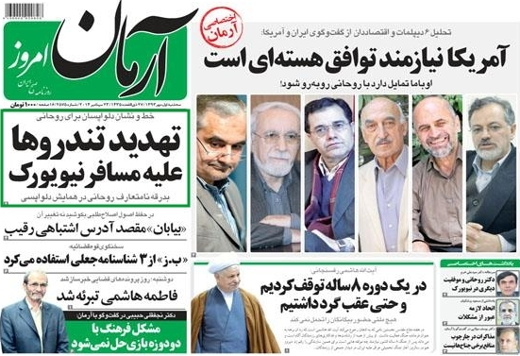A number of hard-line principlists, who are widely known for their unbridled support for former President Mahmoud Ahmadinejad and his policies, have lately expressed concern over Iran’s foreign policy.
In reaction, Arman-e Emrooz, a reformist daily on Tuesday published brief answers by six diplomats – past and present – and economists to the following questions: 1. Do you see a meeting between Presidents Obama and Rouhani as a threat or an opportunity? 2. Who will benefit from and whose interests will be harmed by the resumption of ties between Iran and the United States, and who needs the reestablishment of relations most? The following is an excerpt of the answers the six provided:
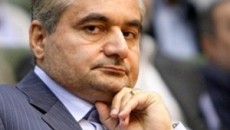 Seyyed Hossein Mousavian (Diplomat): The visit of President Rouhani to New York is an opportunity. Unfortunately, some individuals with political motivations seek to take away this opportunity from Iranian diplomats and President Rouhani.
Seyyed Hossein Mousavian (Diplomat): The visit of President Rouhani to New York is an opportunity. Unfortunately, some individuals with political motivations seek to take away this opportunity from Iranian diplomats and President Rouhani.
Iran and the United States need to settle their differences in bilateral meetings. That President Obama has said he’s open to meeting President Rouhani is a good sign that a thaw in relations might be around the corner.
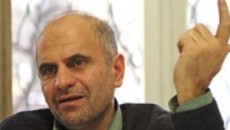
In the absence of efforts to boost local capabilities, normalization of ties with the US won’t serve our interests, however at this stage making efforts and holding talks to clear the hurdles standing in the way won’t do us any harm.
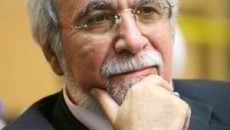
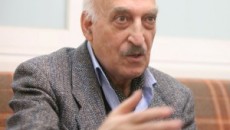
I believe such a meeting is necessary and the Iranian people have given President Rouhani a mandate for that. Most Iranians favor a foreign policy approach that can help society find its way out of stalemates, ease the existing economic strains on people, and avoid social harms.
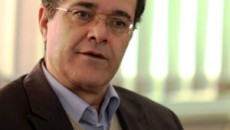
Russia and our Arab neighbors don’t want that to happen. Middlemen are trying to prevent a deal from being concluded.
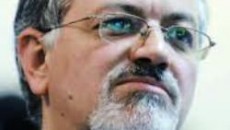
The West has reached a deadlock in the Middle East and getting rid of the problems in the region would be possible only if Iran’s case is settled first. Everyone is waiting for the talks between Iran and P5+1 to result in a deal that serves the interests of both sides.
